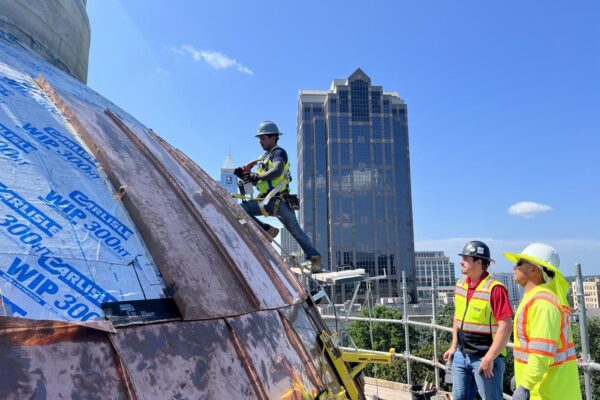
Special to IFN
RALEIGH — The North Carolina State Capitol will reopen to the public on Monday, July 8, following the completion of a major construction and restoration project.
Completed in 1840, the Capitol is a National Historic Landmark. From May 2023 to July 2024, workers replaced the copper roof and dome, overhauled the heating, ventilation, and air conditioning system, and repaired deteriorating mortar and stone. The State Capitol Foundation produced a short video that gives an overview of the project and highlights the work of some of the skilled craftsmen who worked on the building.
“We are thrilled that this once-in-a-generation project is finished and look forward to welcoming the public back to the State Capitol,” said Capitol Site Administrator Terra Schramm. “We get to experience and learn from the rich history of this place because those who came before us took pride in our State Capitol and worked to preserve it. This round of improvements will make sure that the Capitol continues to serve the people of our state for generations to come.”
Some of the copper from the dome was salvaged to make limited edition ornaments, which will be sold in the Capitol’s gift shop by the State Capitol Foundation. Proceeds from the sale of these souvenirs will fund educational programs at the Capitol, as well as future preservation and restoration projects.
Starting July 8, visitors are welcome to take self-guided tours of the building Monday-Friday, from 9 a.m. to 5 p.m., and Saturdays from 10 a.m. to 5 p.m. Free public guided tours are available on Saturdays at 11 a.m. and 2 p.m. Group tour schedules and availability will be announced in August.
The State Capitol’s mission is to preserve and interpret the history, architecture, and function of the 1840 building and Union Square. It is within the Division of State Historic Sites within the N.C. Department of Natural and Cultural Resources, and located at One E. Edenton Street in downtown Raleigh. To learn more about the history of the North Carolina State Capitol, please visit www.historicsites.nc.gov/capitol.



